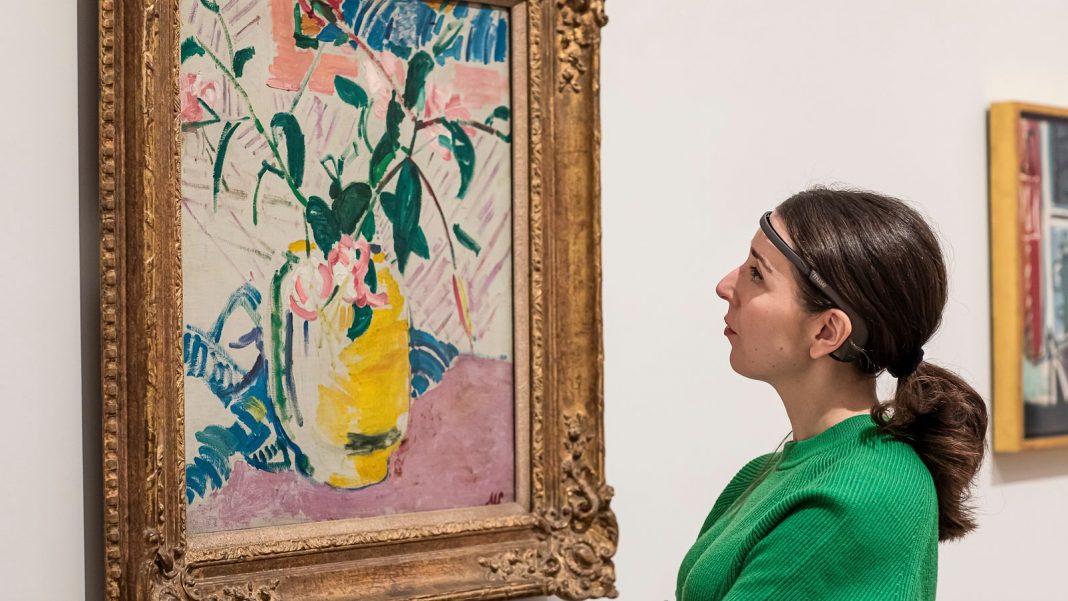Headsets that show how art affects your brainwaves are to be toured at museums and galleries around the UK.
The headsets are connected to an electroencephalogram (EEG) monitor, allowing people’s brainwaves to be visualised in 3D and in real-time on screens.
The devices have already been used at the Courtauld Gallery in London where people were able to see how their brains were impacted by pieces from artists such as Vincent van Gogh, Èdouard Manet, and Paul Cézanne.

The devices have already been used at the Courtauld Gallery in London
The scheme is the latest initiative by the charity Art Fund to encourage visitors back into museums and galleries – which have struggled to return to pre-pandemic visitor numbers.
“This is a way of just showing us exactly what happens in our brains and how exciting it is to actually be back in a museum context, back in a gallery, seeing real art, having that experience” Art Fund director Jenny Waldman told Sky News.
“What we’re trying to do with this experiment is show how fantastic the museum experience is and encourage people back.”

Art Fund director Jenny Waldman
Read more from Sky News:
Thieves cut through floor to steal priceless antiques from museum
British Museum’s Welsh artefacts ‘should return to Wales’
The technology, created by special effects company The Mill in collaboration with interactive artist Seph Li, is able to show the impact art can have on the human brain.
According to Dr Ahmad Beyh, a neuroscientist and research fellow at Rutgers University, art could have a long-term positive impact on the brain, though he said more research was needed.

Neuroscientist and research fellow at Rutgers University, Dr Ahmad Beyh
“Reward and pleasure coincide in a location in the brain with the signature of beauty in art. And that same area happens also to be the target of some treatments for things like depression,” said Dr Beyh.
“It seems that there’s a common factor here that art engages the brain in a certain way, especially when you find the beauty in art that could be beneficial not just in the moment, but maybe longer term.”







